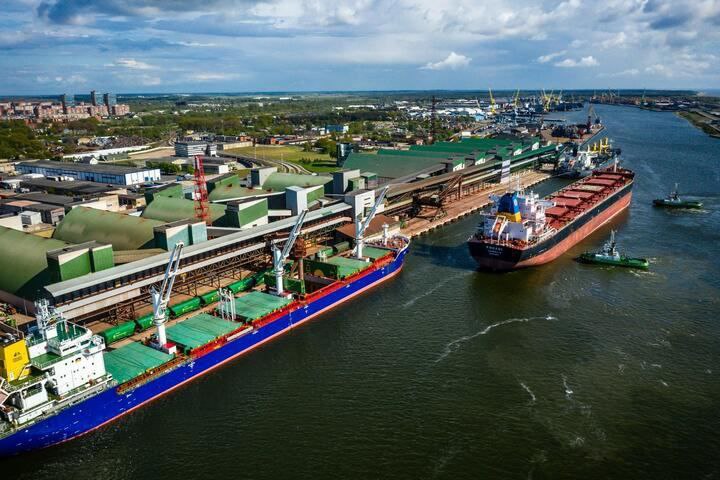The European Union, in coordination with its member states, has implemented several rounds of sanctions targeting key sectors of the Russian economy, including energy, finance, and defense. These measures have restricted access to Western technology, capital, and markets, making it increasingly difficult for Russia to pursue its expansionist agenda. The EU’s sanctions have also targeted individuals and entities involved in the annexation of Crimea and the ongoing conflict in Ukraine, freezing their assets and imposing travel bans.
Similarly, the United States has taken a strong stance against Russian aggression, imposing a range of sanctions that have severely limited Russia’s ability to conduct business internationally. The U.S. sanctions have targeted Russian oligarchs, government officials, and entities involved in cyberattacks, human rights abuses, and interference in democratic processes. These measures have not only disrupted the financial activities of these individuals and entities but have also deterred foreign investors from engaging with Russia.
The effectiveness of these sanctions is evident in the economic consequences faced by Russia. The Russian economy has experienced a decline in foreign investment, a devaluation of the ruble, and a decrease in oil revenues due to restrictions on energy exports. These economic pressures have forced Russia to divert resources towards managing its internal challenges rather than pursuing its aggressive foreign policy objectives.
Furthermore, the sanctions have also had a significant impact on Russia’s ability to project its influence abroad. The restrictions on technology transfers and access to Western markets have hindered Russia’s military modernization efforts and limited its ability to support proxy forces in conflicts such as Syria and Libya. Additionally, the targeted sanctions on individuals and entities involved in cyberattacks have disrupted Russia’s ability to carry out malicious activities in cyberspace.
However, it is important to acknowledge that sanctions alone cannot completely change Russia’s behavior. While they have been effective in curbing Russian activities outside of its borders, they have not led to a fundamental shift in Russia’s geopolitical ambitions or its approach to international relations. Russia has shown resilience in finding alternative sources of financing and partnerships, and it continues to seek ways to circumvent the sanctions.
Therefore, it is crucial for the international community to maintain a united front and continue to apply pressure on Russia through sanctions while also exploring diplomatic avenues for resolving conflicts and addressing the root causes of Russian aggression. By combining economic pressure with diplomatic engagement, there is a greater chance of achieving long-term stability and deterring further Russian aggression.
In conclusion, both European and American sanctions have proven to be effective in blocking Russian activities outside of Russia. These measures have had a significant impact on the Russian economy and its ability to pursue its geopolitical ambitions. However, it is important to recognize that sanctions alone are not a panacea and must be complemented with diplomatic efforts to address the underlying issues. By maintaining a united front, the international community can continue to exert pressure on Russia and work towards a more stable and peaceful global order.
Several countries have been known to host significant amounts of money belonging to Russian oligarchs and the Russian state. These countries serve as popular destinations for investment, financial transactions, and asset holdings. While it is challenging to provide an exhaustive list, some notable countries include:
1. United Kingdom: London, in particular, has been a favored destination for Russian oligarchs and their wealth. The city’s financial hub and property market have attracted substantial investments from Russian individuals and entities.
2. Cyprus: The island nation has long been a popular offshore financial center for Russian businesses and individuals. Its favorable tax regime and proximity to Russia have made it an attractive destination for capital flows.
3. Switzerland: Known for its banking secrecy laws and stable financial system, Switzerland has been a preferred location for Russian oligarchs to store their wealth. Swiss banks have historically managed significant assets belonging to Russian clients.
4. United States: American cities, such as New York and Miami, have attracted Russian investments in real estate, businesses, and other assets. The U.S. offers a stable and transparent legal and financial system, making it an appealing destination for Russian capital.
5. Luxembourg: This small European country has become a hub for Russian investments, particularly in the financial sector. Its favorable tax laws and investor-friendly environment have made it an attractive destination for Russian wealth.
6. Germany: German cities, such as Berlin and Munich, have seen substantial investments from Russian individuals and companies. The country’s strong economy and real estate market have made it an appealing choice for Russian capital.
7. Israel: Russian oligarchs and wealthy individuals have increasingly invested in Israel, particularly in the real estate and technology sectors. The country’s strong ties with Russia and its growing economy have made it an attractive destination for Russian capital.
It is important to note that the movement of funds and assets by Russian oligarchs and the Russian state is often complex and can involve multiple jurisdictions. Additionally, the global financial landscape is constantly evolving, and new destinations for Russian capital may emerge over time.
Belgium has been known to attract Russian money due to several factors that make it an appealing destination for investments and asset holdings:

1. Financial Stability: Belgium has a reputation for having a stable and well-regulated financial system. Its banks are considered reliable and trustworthy, providing a secure environment for storing and managing wealth.
2. Geographic Location: Belgium’s central location within Europe makes it a convenient gateway for Russian investors looking to access the European market. Its proximity to major financial centers like London, Frankfurt, and Paris enhances its appeal as a financial hub.
3. Tax Benefits: Belgium offers certain tax advantages that make it attractive for Russian individuals and businesses. For instance, the country has a favorable tax regime for holding companies, allowing for tax optimization and asset protection.
4. Privacy and Confidentiality: Belgian banks have traditionally upheld strict confidentiality laws, which have been appealing to Russian clients seeking to keep their financial affairs private. However, it is worth noting that Belgium, like many other countries, has been aligning its regulations with international standards on transparency and combating money laundering.
5. Cultural and Linguistic Connections: Belgium’s historical ties with Russia, including cultural and linguistic connections, have fostered a sense of familiarity and comfort for Russian investors. This familiarity can play a role in their decision to choose Belgian banks for their financial needs.
It is important to note that the reasons for Russian money being kept in Belgian banks may vary from case to case. Each individual or entity may have their own specific motivations, such as diversification of assets, access to European markets, or personal preferences.
Sanctions against Russia are adopted for various reasons, primarily as a response to actions or policies that are deemed to be in violation of international norms or detrimental to the interests of other countries. Some of the key factors that contribute to the adoption of sanctions include:
1. Annexation of Crimea: One of the main triggers for sanctions against Russia was its annexation of Crimea in 2014. This move was widely condemned by the international community as a violation of Ukraine’s sovereignty and territorial integrity.
2. Conflict in Eastern Ukraine: The ongoing conflict in Eastern Ukraine, which is believed to have Russian involvement, has also led to the imposition of sanctions. Russia’s support for separatist movements and its alleged military intervention in the region have been met with international condemnation.
3. Human Rights Concerns: Sanctions may also be imposed in response to human rights abuses or violations committed by the Russian government. This includes actions such as the suppression of political dissent, restrictions on freedom of speech and assembly, and the targeting of journalists and activists.
4. Cyberattacks and Election Interference: Russia has been accused of engaging in cyberattacks and interference in the democratic processes of other countries. Sanctions may be imposed as a response to these actions, aimed at deterring future cyber threats and protecting national security.
5. Chemical Weapons Use: The use of chemical weapons, such as the poisoning of Sergei Skripal in the UK in 2018, has also led to the imposition of sanctions. These actions are seen as a violation of international norms and a threat to global security.
It is important to note that the adoption of sanctions is a complex and multifaceted process, involving diplomatic considerations, assessments of national security interests, and coordination among multiple countries. Sanctions are often seen as a tool to exert pressure and encourage a change in behavior, rather than a definitive solution to the underlying issues.
Peter Slavichek

